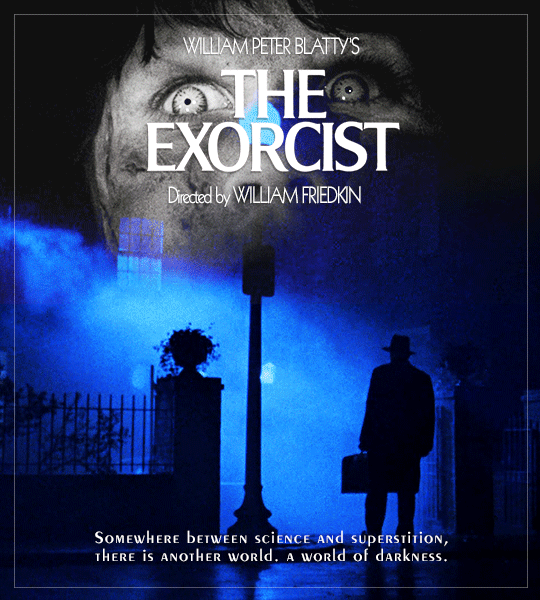But if the Conjuring is an extremely lucrative franchise and a large proportion of American's buy into the "based on a true story" element, how is that demonstrably different or a deterioration of the same belief systems that propelled the Exorcist?
How many Americans think
The Conjuring movies are docudramas based on true events? How many think the franchise is
kinda/sorta based on true events? How many think
maybe?, could be? And what proportion thinks the films are just...
...films? I have no idea how many viewers are watching these films because they think that God battled evil dolls through the instrument of his folksy Scooby-couple.
Do you?
You claim a "large proportion." OK. How do you know? How large is large? And how much of it do they believe?
Whatever proportion that is, that proportion is having a much different experience than what I am talking about with the
The Exorcist. Friedkin's film does not purport to be a true story. It is a work of fiction based on another work of fiction (a book). The audience that watched
The Exorcist, the center mass of that audience, was NOT being hyped up by some purportedly "true story," but was being terrorized by an
untrue story---the more rational/scientific part of the mind beaten back by the syllogistic implications of lingering religious premises (if there is a God, then there is a Devil, and if the Devil finds you, that's your ass).
The film fits that moment, I think, because many more people (the center mass of the culture and, therefore, the center mass of the viewing audience) was theistic in a style (a whiff of brimstone) that fit a moment where the divided mind could be put on the rack. The deterioration of the theistic belief is demonstrable. It can be seen in
demographic changes revealed in national polls. A significantly smaller proportion of theists believe in the
God of the Bible is legit or believe in Hell as a real place. Less than half of Americans attend a Church.
God may not have gone the way of K-Mart yet, but it's not 1973 anymore. Today, a story that announces itself as an untrue story about demons will not put the general audience's mind at war with itself as it did when they were just a little more credulous of that sort of thing. Horror today is more along the lines of entertainment
. The Exorcist was closer to trauma.
There have also been ton of
Purge and
Saw movies. Whenever Halloween swings around, the franchise scare-flicks pop up to rake in cash. The Conjuring/Annabelle franchise is part of this pack. It's entertainment for most (I'd guess, but I await your empirics). And for that portion of the audience which is credulous, they're terrified in a different way for a different reason--they're terrified because it is presented as a true series of unfortunate events (Demony Snickets). The audience of
The Exorcist was terrified not because the story was true, but because of of the syllogistic implications of the "God Baggage" they brought into the theater with them.


